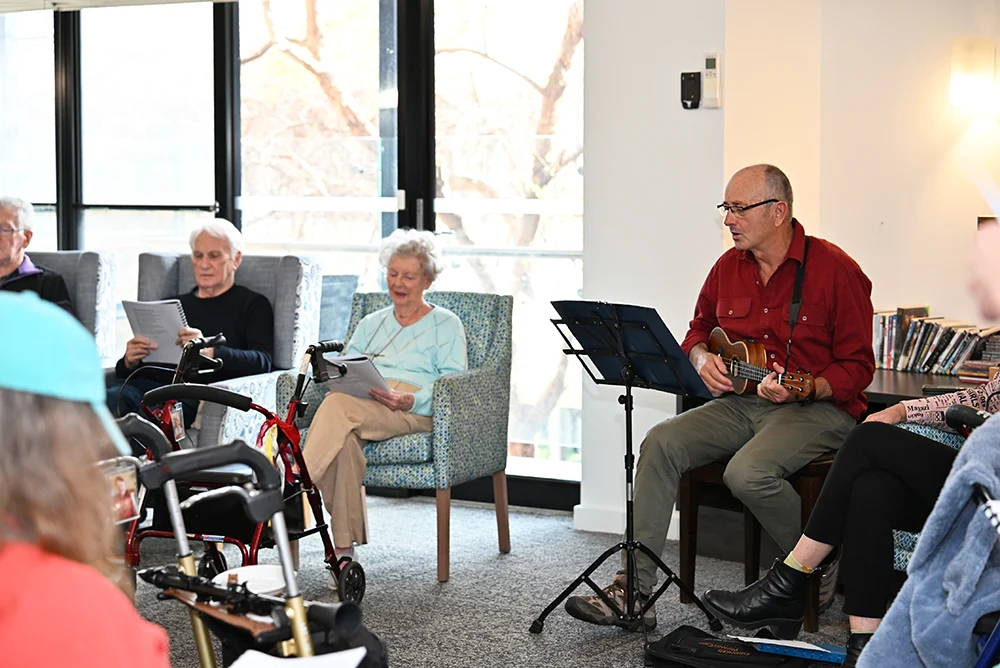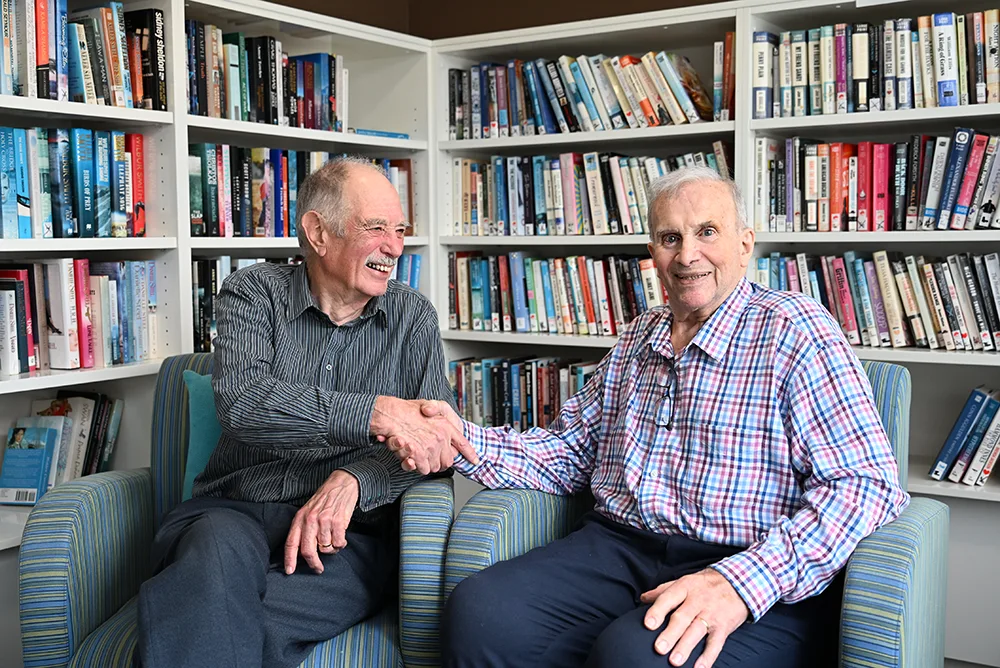How to Support a Loved One When Symptoms of Dementia Start to Develop

Most of us misplace our belongings from time to time. It might be a phone or the car keys, or possibly a favourite jumper or jacket.
Given how busy the days can be, it’s usually nothing to worry about. But when forgetfulness begins to impact an older adult’s daily life, it may be a sign of something more serious.
If you are concerned about an ageing loved one’s health, it might help to learn more about the warning signs of dementia and how families can help.

Common Symptoms of Dementia
Memory loss and forgetfulness are the classic symptoms of Alzheimer’s disease and many other forms of dementia. Most people are aware that these red flags can indicate dementia, but there are other warning signs to be aware of, such as:
- Change in overall mood
- Trouble managing finances
- Getting lost in familiar places
- Difficulty concentrating or making decisions
- Vision changes, including depth perception
- Problems with written and verbal communication
- Expressing they feel their mind is ‘clouded’
- Trouble with stability and balance
If these symptoms start to develop, it is important to see your family GP for advice and to seek a possible diagnosis.
Supporting an Ageing Loved One Diagnosed with Dementia
It can be tough to accept that a loved one has dementia, and it feels daunting to figure out how to manage symptoms. Know that you can take steps to support the senior’s independence on their journey.
One balancing act families often struggle to navigate is how much to do for their loved one, and what to encourage them to tackle on their own.
There’s ample evidence that shows the more you do for an older person with dementia, the more you take away from them.
It’s known as learned helplessness.
Doing too much for a person with Alzheimer’s disease or another form of dementia can work against them.
Because they may struggle in some areas, such as preparing a meal or writing out cheques, they might begin to doubt their ability to do anything unaided.
Well-intentioned loved ones might jump in and take over when they see their loved one’s frustration and self-doubt. Instead, try to find ways to support and empower their independence.
If you are a family carer for a senior with dementia, one solution might be to try out adaptive tools and specialised equipment.
A few common ones include:
- Orientation dementia clocks: Staying oriented to present time can be a challenge for those living with dementia. Purchasing an orientation clock that displays the date, day, and time can be helpful. They are large, easy to read, and rather stylish – maintaining their dignity. Some even give verbal prompts that can tell the older person this information.
- Adaptive dining utensils: As dementia progresses, it can cause problems with the older person’s hand-eye coordination. That can make eating independently more difficult. Investing in adaptive cutlery might help. Most of these utensils are larger and have handles that are easier to grip. We also recommend having a plate that contrasts with the table or placemat below, to make it easier to see.
- Signs with visual cues and words: Create signs with pictures depicting the items and rooms the ageing adult uses. They can act as visual cues that promote greater independence. For example, if you keep the bathroom door closed, place a sign with a picture of a toilet on the outside of the door. Or make a sign showing a hand putting toothpaste on a toothbrush and put it on the bathroom mirror.
- “This Is Your Life” book: Another way to support the memory of a person with dementia is by creating a “This Is Your Life” book. It’s a chronological look back at important people and events in the senior’s life. This tip sheet from Dementia Australia can help you learn how to put together a book for your family member. If the senior has in-home carers involved in their life or moves to an aged care home, the book is also an excellent tool for helping carers get to know them. You may also want to include answers to regularly asked questions by your loved one.
Therapies to Help Adults with Dementia Feel Connected
It’s also important not to overlook different therapies that can boost the spirit of an adult with dementia. When they can engage in activities, a person with a memory impairment will likely feel more successful. Pets, art, and music all have proven benefits.
Animals are welcomed into a variety of health care settings, ranging from hospitals to hospice, because of how positively patients respond. Art has a similar effect. It can be a means of self-expression and communication.
The same is true of music. It can help a person reconnect with long-forgotten memories. Many adults with dementia can even sing along to favourite songs from their younger days long after their ability to carry on a conversation is impaired. That provides a sense of pride for an adult who has been struggling to feel connected with others. You may want to play some favourite tunes from a loved ones younger years (around 15-30 years of age), or, encourage them to play instruments they once played or even new ones.
Dementia Care at Mayflower
At Mayflower, we have several care options to consider when a loved one has dementia. Some families find that an in-home carer allows a family member with Alzheimer’s disease or another type of dementia to remain in their home longer. Others believe when it comes to quality of life and safety, the services offered in an aged care home are best. Contact us today to learn more.










